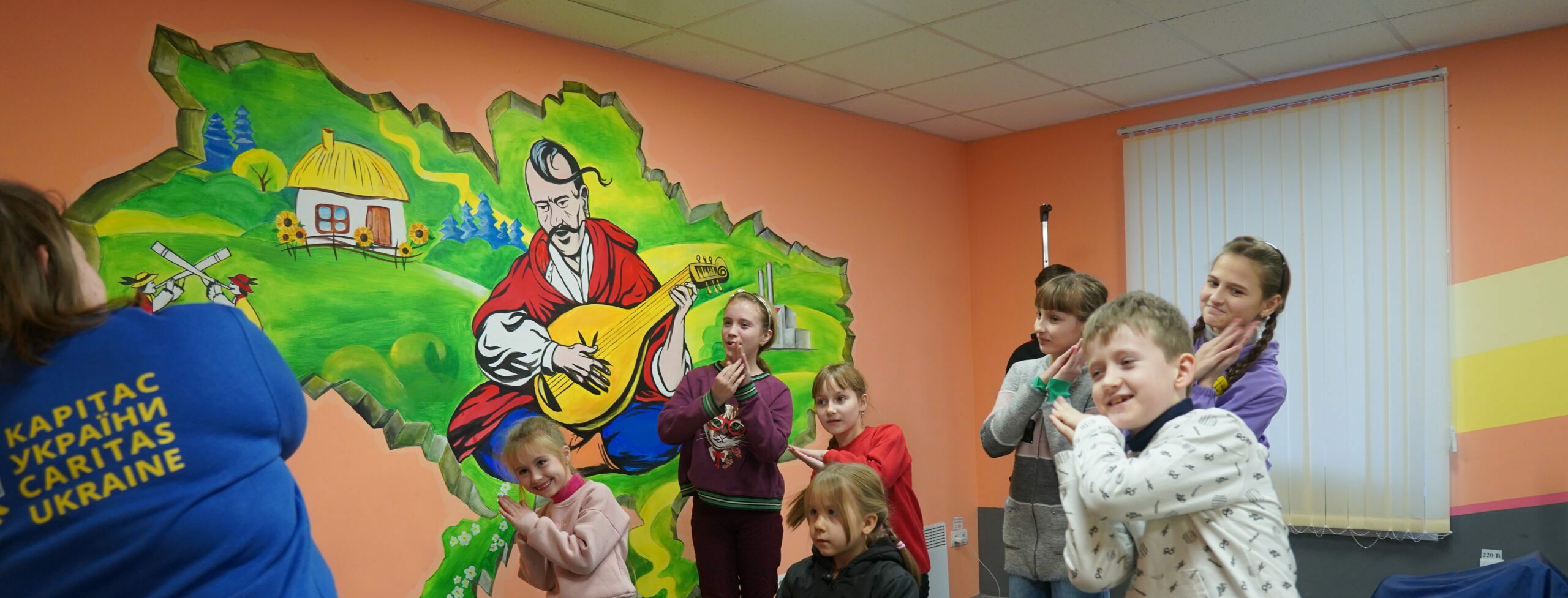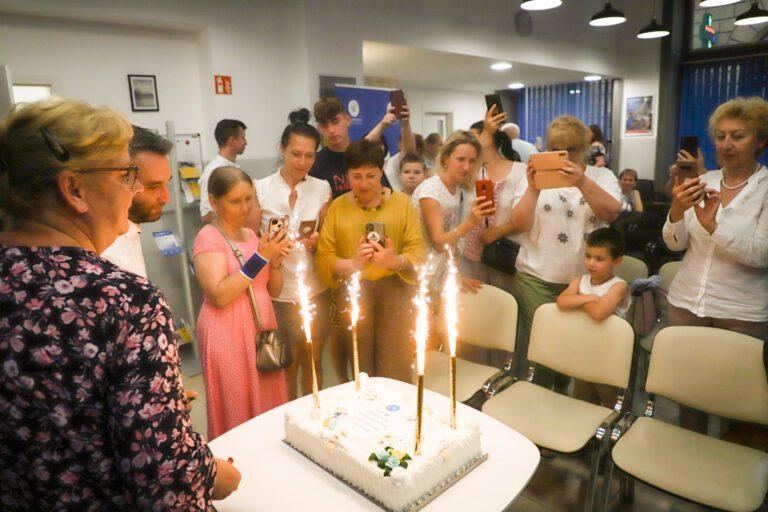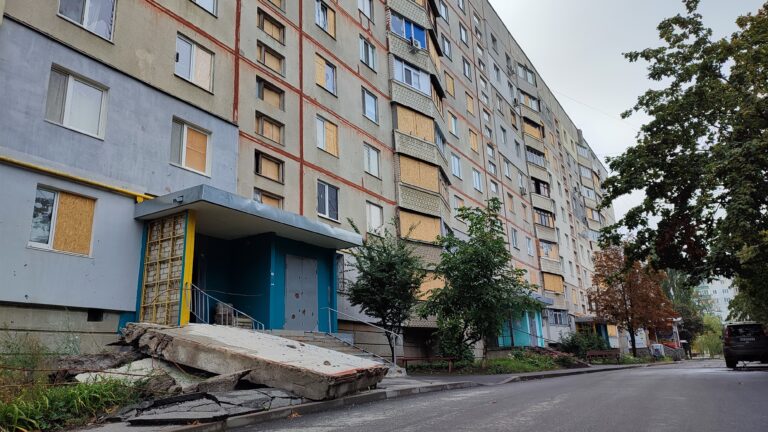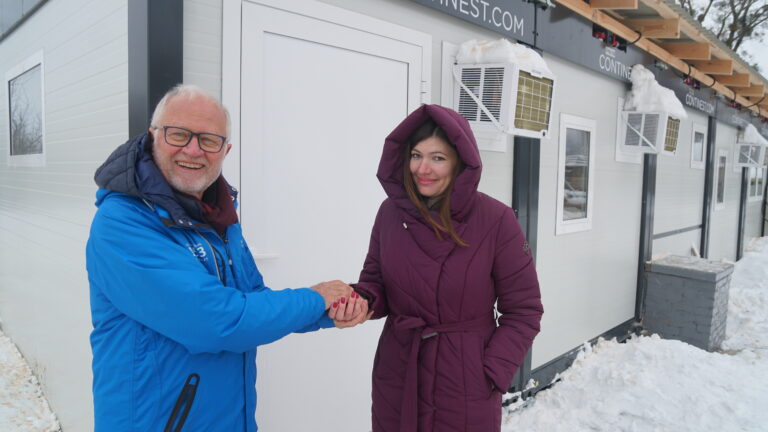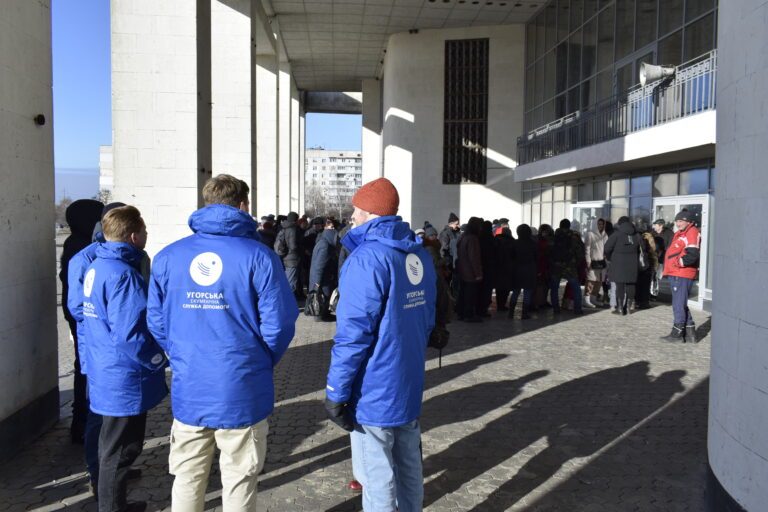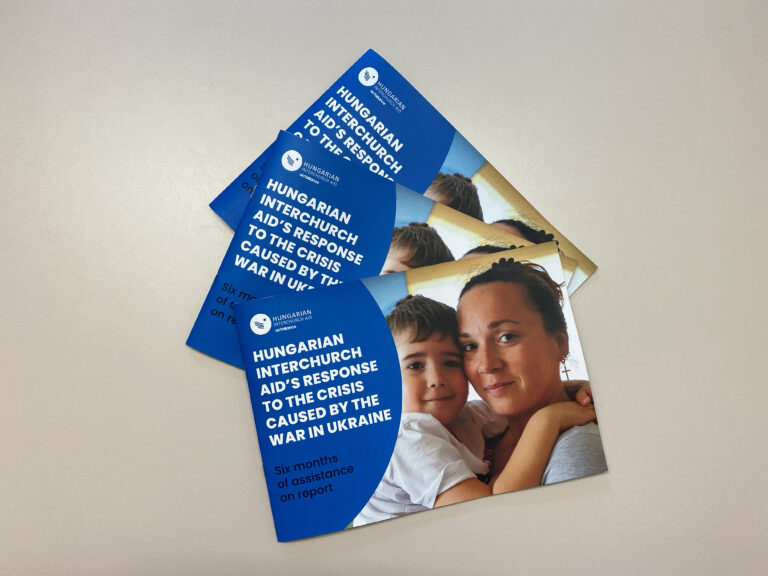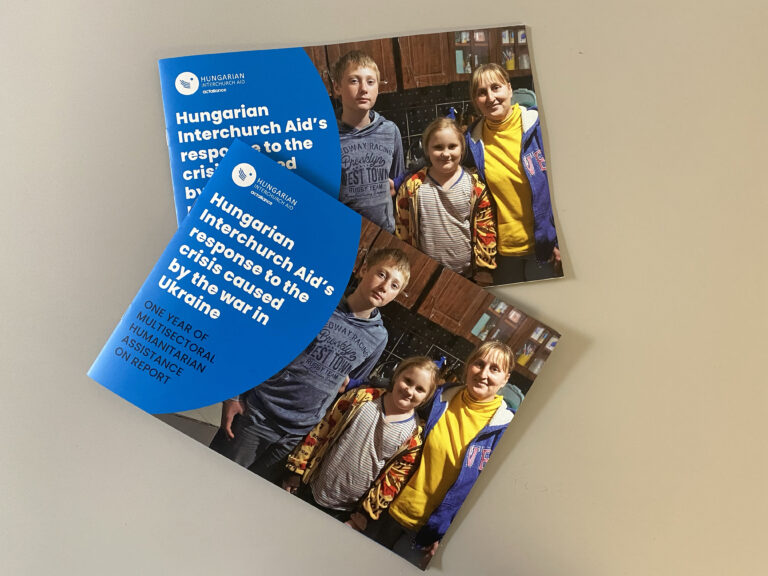Fostering resilience through rediscovering joy and play: psychosocial help for a Donbas community
Enduring the tragic consequences of war for almost 9 years now, the people of the Donbas are struggling for their mental health, too. Supported by ACT Alliance and Hungarian Interchurch Aid, Caritas Kramatorsk has been at the forefront of this effort. By establishing spaces of creativity and youth development in Kramatorsk and the villages surrounding it, the organisation’s psychologists and social workers provide essential services to the communities living under the constant threat of aerial attacks. Due to 2 years of COVID-induced online learning, followed by a further 2 years since the war broke out, especially children’s development is hindered by the circumstances.
The sessions organised by HIA-partner Caritas Kramatorsk are in most cases the only educational activities in the village communities where children can spend time with their peers. Due to the proximity to the front line and the following, understandable safety concerns for children, all preschools, schools, and after-school art centres have suspended their activities.
“The most important thing in this region is the safety of children and adults, so all children study from home, through online platforms. This helps to avoid crowds and potentially dangerous situations, but it also poses a huge challenge for both children and parents since they are deprived of socialization” – says Liudmila the coordinator of the PSS program of Caritas Kramatorsk.
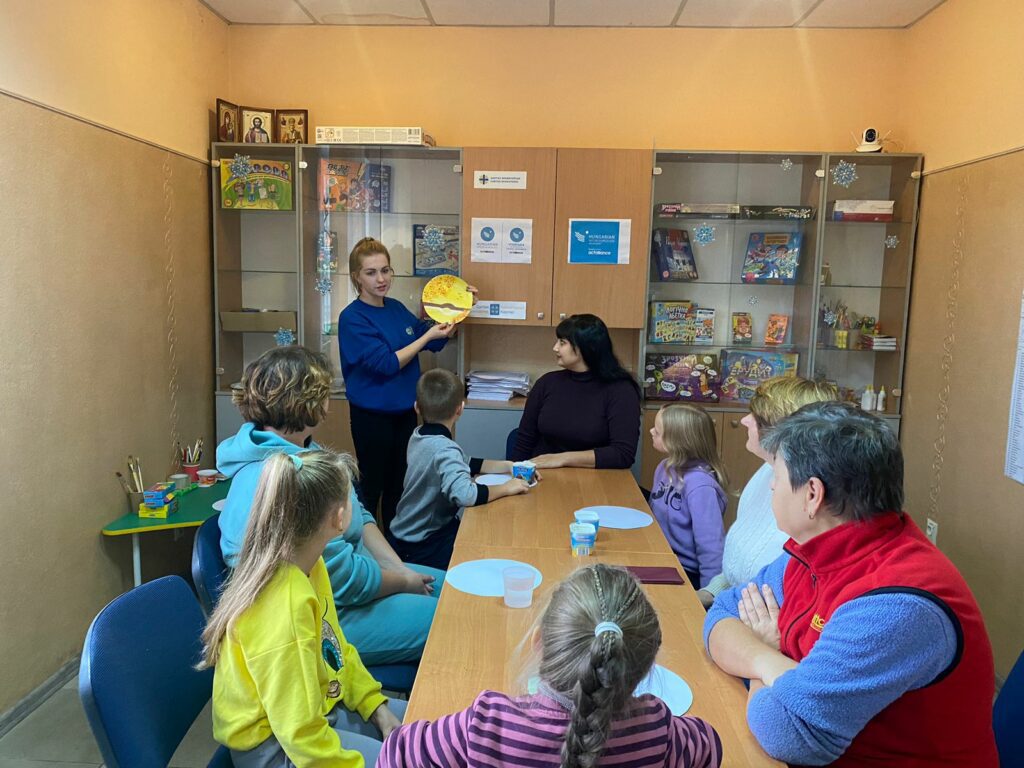

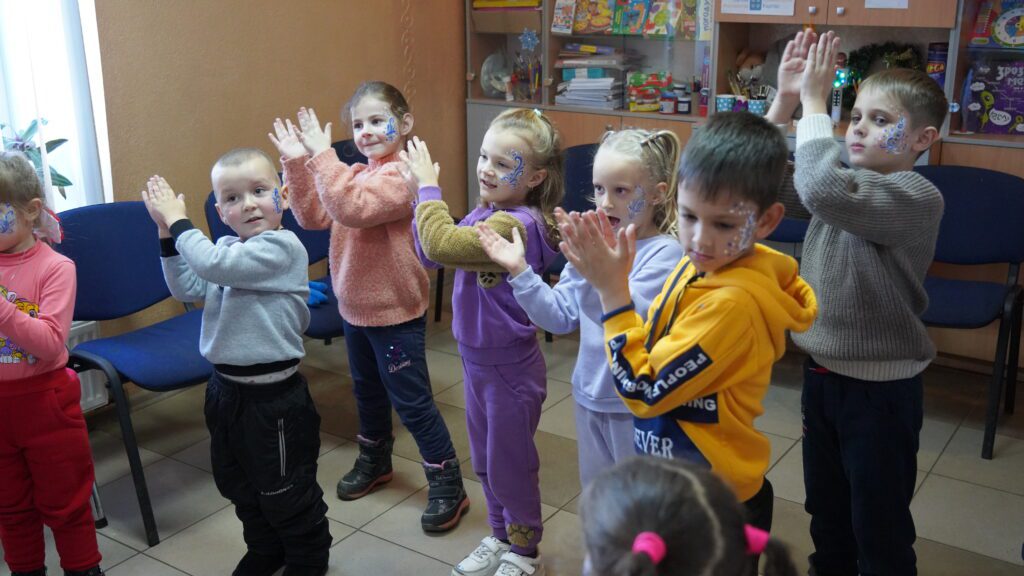

The importance of peer-to-peer learning in childhood is a well-established fact by now. With all classes held online, there are no fun-filled games with classmates in the breaks for the children of Oleksandrivka. This has been going on for years now. “You hardly see kids on playgrounds anymore. If there are a few, they are always under the supervision of adults” – says Maria, one of the parents participating in a workshop aimed at restoring the bond between mother and child.
For many adults, these creative classes are perhaps the first since they were pupils themselves, giving them much-needed relaxation. “They have become kind of magical to me, it’s been a long time since I’ve fallen into such creative immersion. I come back from these classes so rested, as if I’ve slept a few extra hours, even though we were pretty busy with decoration” says Oleksandra, one of the participants of the festive workshop on creating Christmas decorations.
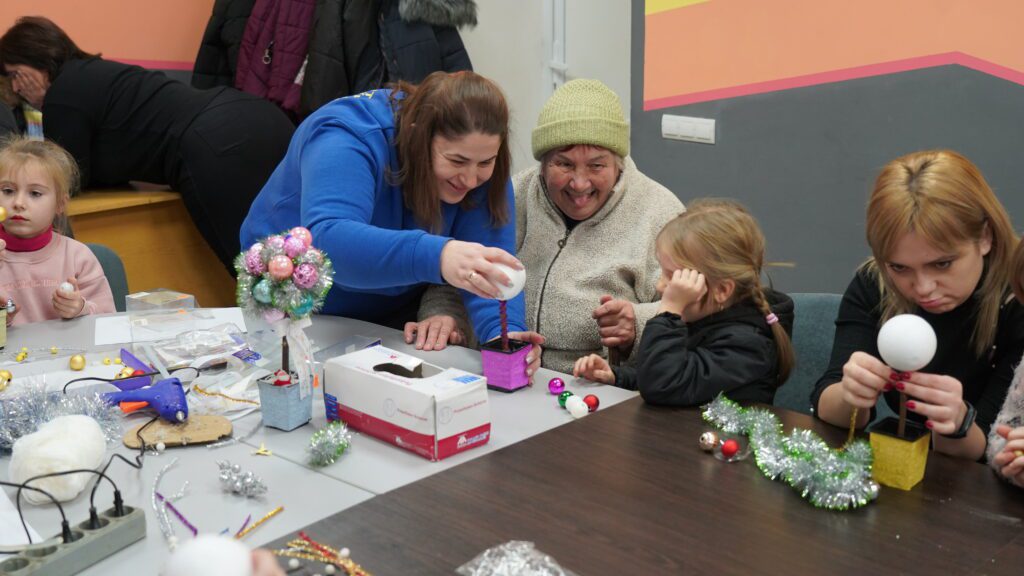

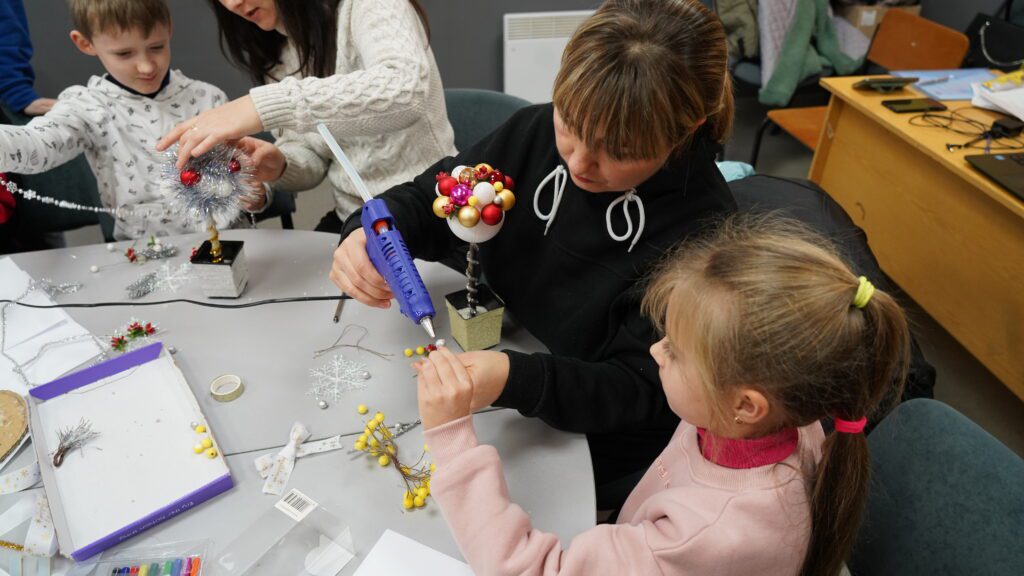

Life in the village has never been easy, and war has made it even more difficult. Many fathers are now at the front, and mothers have become the heads of families. The time that used to be devoted to children is now spent on maintaining the household. All of these circumstances create challenges in early childhood development. But classes of preschool and after education provided by Caritas give remarkable results and have a positive impact on locals. After a few sessions, they become more relaxed and cheerful.
The significance of these events is not to be underestimated according to Yulia, a psychologist in the project. “Some children in their short 4-year life have rarely communicated with their peers because kindergartens have been closed since the pandemic. A 5-year-old boy who started attending the classes did not understand what to do with a pencil and a colouring book. He had a very difficult situation in his family. His father died in the war, and his mother has addictions – the only one who takes care of the boy is his old grandmother. But after a few sessions, he became more active, beginning to show interest in books and learning to read.”
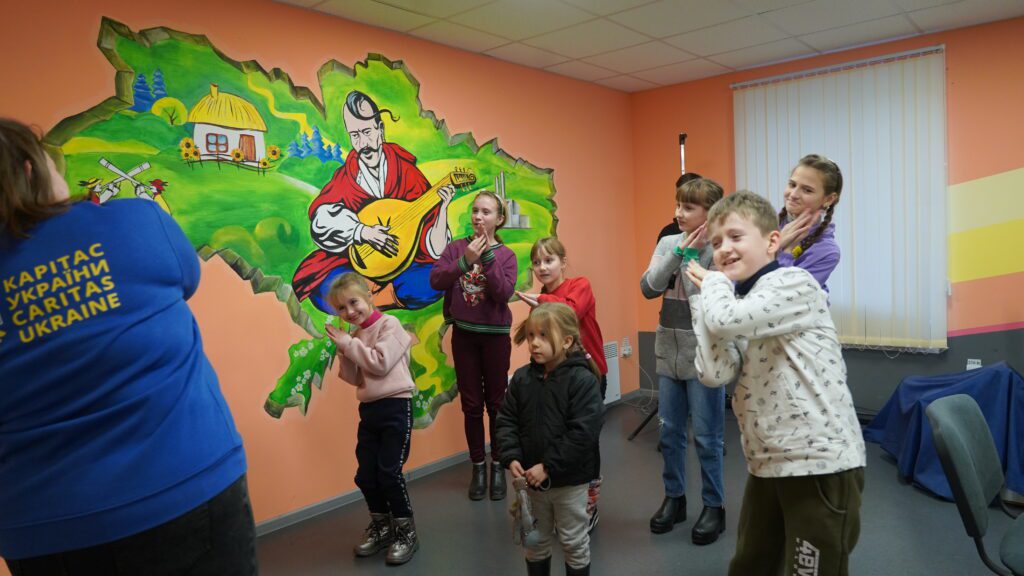

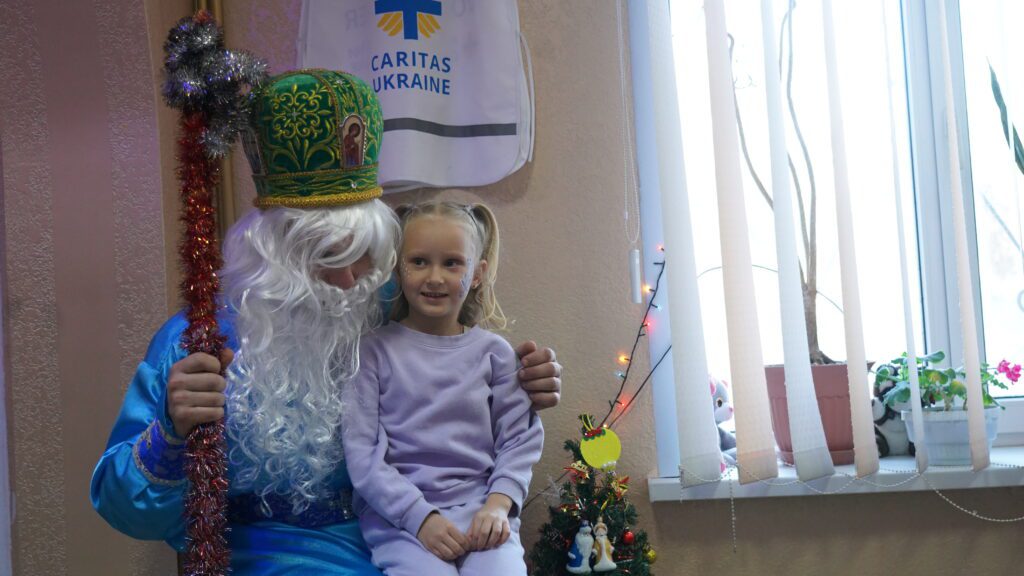

It’s not an isolated case either: the joy and eagerness of the children coming to preschool classes speaks for itself. Little kids learn to draw with pencils and paint, develop their fine motor skills, play board games, create pictures with coloured paper, and form their favourite animal out of clay.
Parents of a preschool-aged girl were also enthusiastic about the get-togethers. Once a shy girl, afraid of loud noises and other kids, she opened up as a result of the programme. “I had to sit with my daughter, Veronika at the table for the first class because she was afraid to be alone with unfamiliar children and teachers. And now she communicates freely with all the kids, makes a best friend, and in between classes, she keeps telling me how much fun they had. We are delighted to see how our shy child has turned into a cheerful little bee!” A further consequence of this development is that parents also have more time to do chores or spend time together.
Caritas specialists are experienced professionals in social pedagogy and psychology, who use all the methods of movement and psychological training available to help the local population. “I love working with teenagers, they are so creative and smart – the children of the new generation. We conducted theatre play groups for them. These groups aimed at releasing blocked emotions, which, as you know, are many at this age, and at getting rid of psychological trauma,” says Natalia, a social worker at the project, about the methods of her work.
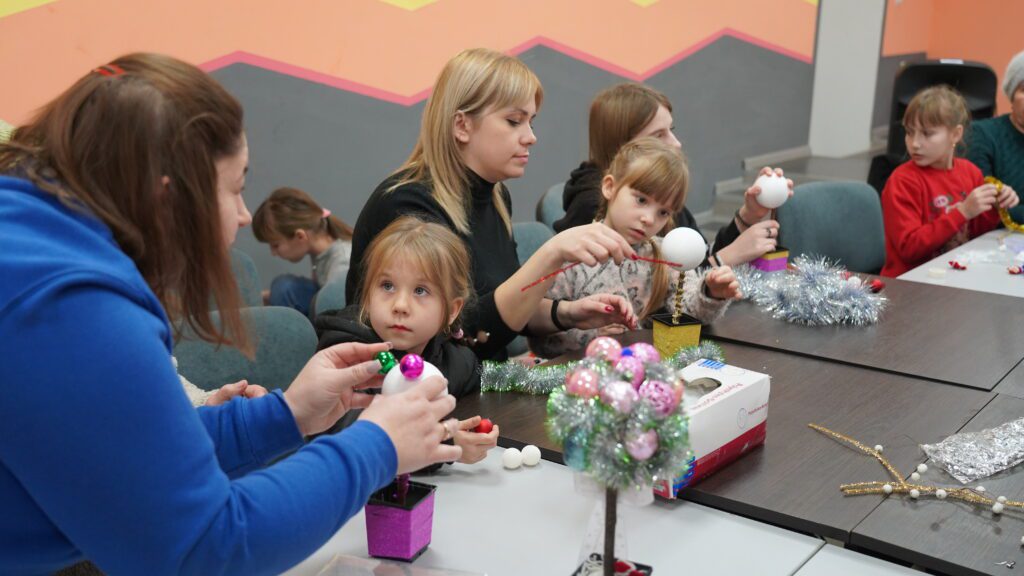

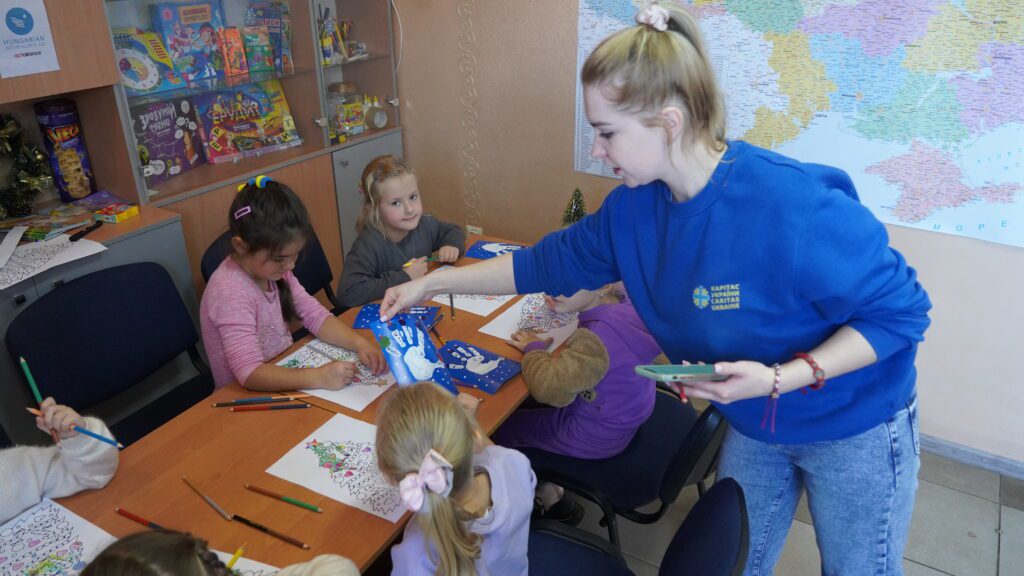

The small room of Caritas in Oleksandrivka became a meeting point and community hotspot rather quickly. In addition to children’s activities, it’s also the venue of yoga classes for adults who suffer no less from the effects of war than the fragile souls of children. The yoga class was initiated by one of the participants of art therapy sessions where adults could immerse themselves in creativity and decorate eco bags. She felt that her knowledge and training as a yoga instructor could be useful to her fellow community members, and volunteered to teach these classes for free.
With close to 500 people having participated in the activities, the transformative impact of these is evident. Children rediscover the joy of learning and play, adults find solace and rejuvenation, and a community living in the shadow of war grows resilient. For this, the dedicated work of the mental health professionals of Caritas and the support of HIA and ACT Alliance are essential. Through shared experiences, whether in a classroom, an art therapy session, or a yoga class, the people of Oleksandrivka are not only rebuilding their lives but also fortifying their collective spirit for a brighter tomorrow.

